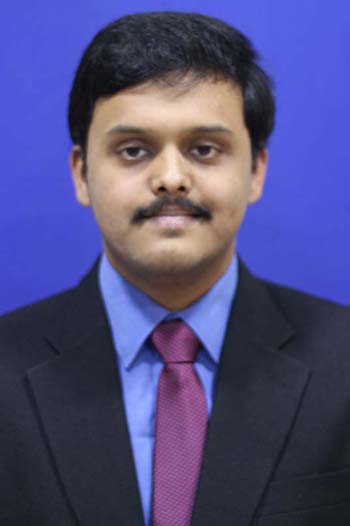ECE grad student selected for QISE-NET program

Karthik V. Myilswamy, a graduate student in Purdue University’s School of Electrical and Computer Engineering, has been selected for a one-of-a-kind national training program for graduate students pursuing careers in quantum science and engineering. Myilswamy is one of 16 students from across the U.S. accepted to the Quantum Information Science and Engineering Network Triplet (QISE-NET) program, which is devoted to advancing academic and industrial efforts in the science and engineering of quantum information.
Students selected for the QISE-NET program receive up to three years of funding. Each cohort in the network includes sets of triplets, with each triplet comprising the graduate student, mentor from industry or a national laboratory, and the university PI.
Andrew M. Weiner, the Scifres Family Distinguished Professor of ECE, will serve as Myilswamy’s university PI and Dr. Joseph Lukens at Oak Ridge National Laboratory will be the external mentor. Their triplet proposal is titled, "Integrated Quantum Photonics for Quantum Networking.” Myilswamy says quantum networking is a promising way to revolutionize computation and secure communication. He says the proposal focuses on exploring different aspects of quantum networking on integrated photonic platforms.
“The QISE-NET fellowship would support our collaboration in the endeavor to tackle technological bottlenecks with more independence,” says Myilswamy. “I also believe QISE-NET would provide me with a wonderful networking platform, letting me interact with a broader research community and potentially get inspired and explore new ideas, too.”
This is the fourth cohort for QISE-NET, which is funded by a $2.5 million award from the National Science Foundation. The program is co-led by the University of Chicago and Harvard University and managed by the Chicago Quantum Exchange, a leading national hub for the science and engineering of quantum information and for training tomorrow’s quantum workforce.
